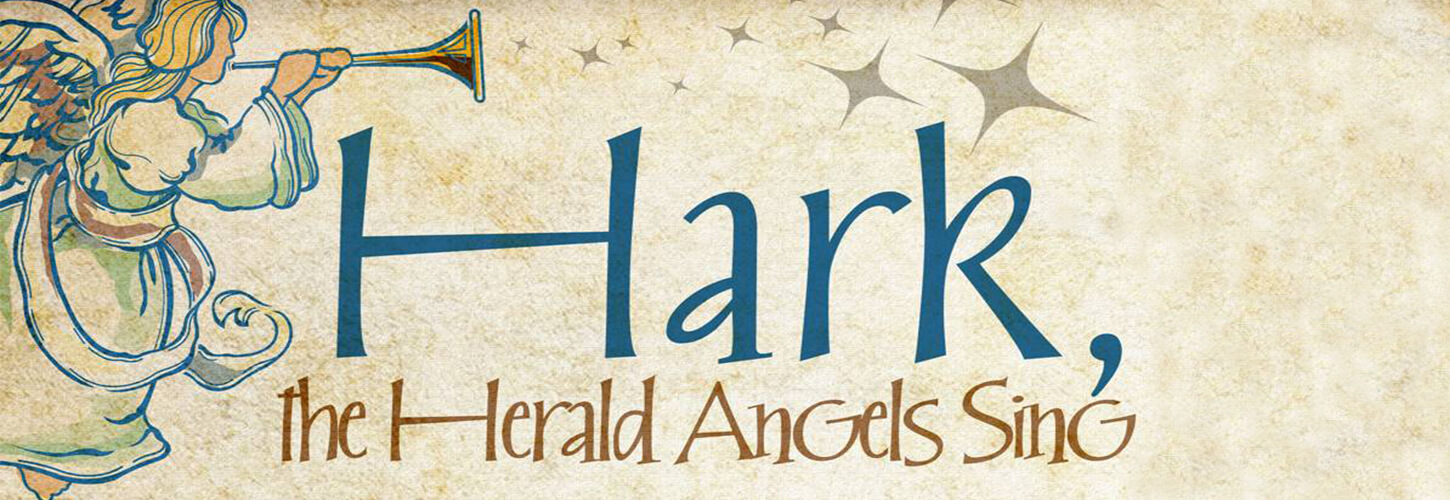
You are invited to join us for church
We would love to host you this Sunday at 9am, 10:45am. Schedule a visit with us today!
One of the things that makes Christmas such a memorable time of year is the music. The same songs, year after year, get stuck in our heads and we can often recite the words without even thinking about it. Recently, I attended an incredible performance by the Springfield Symphony Orchestra, which was dedicated to the music of Christmas.
As the program came to a close, the conductor asked the audience to join the musicians and sing a few lines of some of the most well-known Christmas carols, including several verses of “Hark! The Herald Angels Sing!”
As we in the audience belted out the nostalgic tune, I read the words on the back of the program, trying to make sure I was singing it all correctly. The further we got into the song, the more I began to get distracted from my singing (which I am sure was a relief to those sitting around me!) as the message of the song began to resonate in my soul.
I watched as everyone proclaimed in perfectly crafted theology the message of the Gospel! As I looked around the concert hall, I wondered if those who were singing had ever given pause to what they were saying.
Some have noted that Methodism was born in song and Charles was the chief songwriter.
The History Behind: “Hark! The Herald Angels Sing”
Many of the carols we sing have a rich theological tradition, and “Hark! The Herald Angels Sing!” is no exception. It was written by Charles Wesley, who was an English Methodist leader and hymn writer. Wesley wrote over 6,000 hymns, more than any other male writer (Fanny Crosby wrote 8,000).
His goal in writing hymns was to teach the poor and illiterate sound doctrine. His brother, John Wesley, a famous theologian and founder of Methodism, said that Charles’ hymnal was the best theological book in existence. Some have noted that Methodism was born in song and Charles was the chief songwriter.
Wesley, inspired by the sounds of London church bells while walking to church on Christmas Day, wrote the “Hark” poem about a year after his conversion to be read on Christmas Day. The poem first appeared in Hymns and Sacred Poems in 1739 with the opening line of “Hark, how the welkin (heaven) rings.”
In 1753, George Whitefield, a student and eventual colleague of Wesley’s, adapted the poem into the song we now know today. It was Whitefield who penned the phrase “newborn King.”
God has sent the One who will reconcile the sinner back to Himself.
The Theology Behind: “Hark! The Herald Angels Sing”
The first stanza describes the good news of the savior’s birth. God has sent the One who will reconcile the sinner back to Himself. Therefore, all the nations should rise and sing and proclaim the good news, which is Christ the King! The next stanza speaks to the mysticism of Christ’s coming and the good news in it. The final stanza tells of the accomplishment of Christ and the power that it brings.
For well over two hundred years, “Hark! The Herald Angels Sing” has been a Gospel-saturated anthem pointing people to the Savior. This famed carol is loaded with rich theology.
Hark! the herald angels sing
Glory to the newborn King;
Peace on earth and mercy mild,
God and sinners reconciled:
Joyful all ye nations rise,
Join the triumph of the skies,
With the angelic host proclaim,
Christ is born in Bethlehem:
Hark! the herald angels sing
Glory to the newborn King.
Christ, by highest heaven adored,
Christ, the everlasting Lord,
Late in time behold him come,
Offspring of a virgin’s womb!
Veiled in flesh the Godhead see,
Hail the incarnate Deity!
Pleased as man with men to dwell,
Jesus, our Emmanuel:
Hark! the herald angels sing
Glory to the newborn King.
Hail the heaven-born Prince of Peace!
Hail the Sun of Righteousness!
Light and life to all he brings,
Risen with healing in his wings;
Mild, he lays his glory by,
Born that man no more may die,
Born to raise the sons of earth,
Born to give them second birth:
Hark! the herald angels sing
Glory to the newborn King.
Put The Lyrics Into Practice
This time of the year, our entire culture stops what it is doing and is compelled to turn its gaze toward a baby in a manger, a newborn King. The songs that many Americans, Christian or not, have on their lips and in their heads during this season are ripe with the message of the Gospel.
Take the time to think about the message of the songs and what they mean.
As you sing carols this Christmas, take the time to think about the message of the songs and what they mean. Consider the words you are singing and the truths they proclaim about the Savior you are worshiping.
As we do so, we can all join Wesley in saying, “Glory to the newborn King!”
On Sunday, December 24th, you are invited to join James River Church for our Carols and Communion service at any of our three campuses and online
